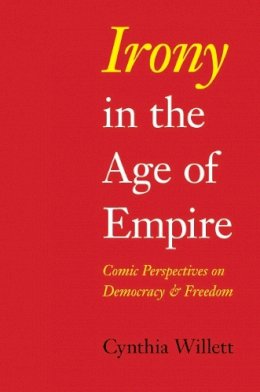Cynthia Willett is Professor of Philosophy at Emory University, where she currently serves as the chair of the department. She is author of Soul of Justice and Maternal Ethics and Other Slave Moralities.
"Willett (Emory) explores how humor—in its multiple expressions of irony, satire, blackface, comedy of manners, wit, ridicule, carnival, camp, and farce—can be a strategy for the subversion of oppressive power and contribute to a more emancipatory democratic ethic. She offers the bold claim that "today no discourse expresses the stakes of freedom better than comedy ... [which] provides one of the most important sources for a philosophical discussion of freedom" as an alternative to the prevailing concepts of negative and positive freedoms she associates with the mainstream liberal view as expressed primarily by Isaiah Berlin. She advocates a third freedom: securing social bonds. Her emphasis here is on the communitarian values of historical memory, friendship, recognition solidarity, and "the libidinal sources of selfhood." In this perspective comedians like Jon Stewart and Stephen Colbert take center stage to fill the vacuum left by a slack news media and anemic political debate. Willett analyzes in some detail comedies of remarriage like The Philadelphia Story and Spike Lee's Bamboozled, and draws on thinkers like Cornel West, Stanley Cavell, Jean-Paul Sartre, and Henri Bergson. She uses these sources adroitly, writes engagingly, and for the most part keeps her argument in focus. Summing Up: Recommended. Upper-level undergraduates through faculty/researchers. —Choice"—B. G. Murchland, Ohio Wesleyan University, April 2009 "[E]xtremely witty, provocative, and timely. . . . It should appeal to anyone interested in American studies or American philosophy. —Mary Magad"—Ward, Middle Tennessee State University "While comedy has been historically dismissed as a lower form of art (perhaps only good for the masses), tragedy has been generally associated with a stoic and grandiose form of consciousness that discloses to us the gravitas of freedom. Cynthia Willett challenges this venerable and joyless tradition and claims that comedy and irony educate us about the corporeal and psychic dimension of freedom. This is an original and profound book that grapples with the political power of laughter, and this is no laughing matter, ever."—Eduardo Mendieta, SUNY Stony Brook

